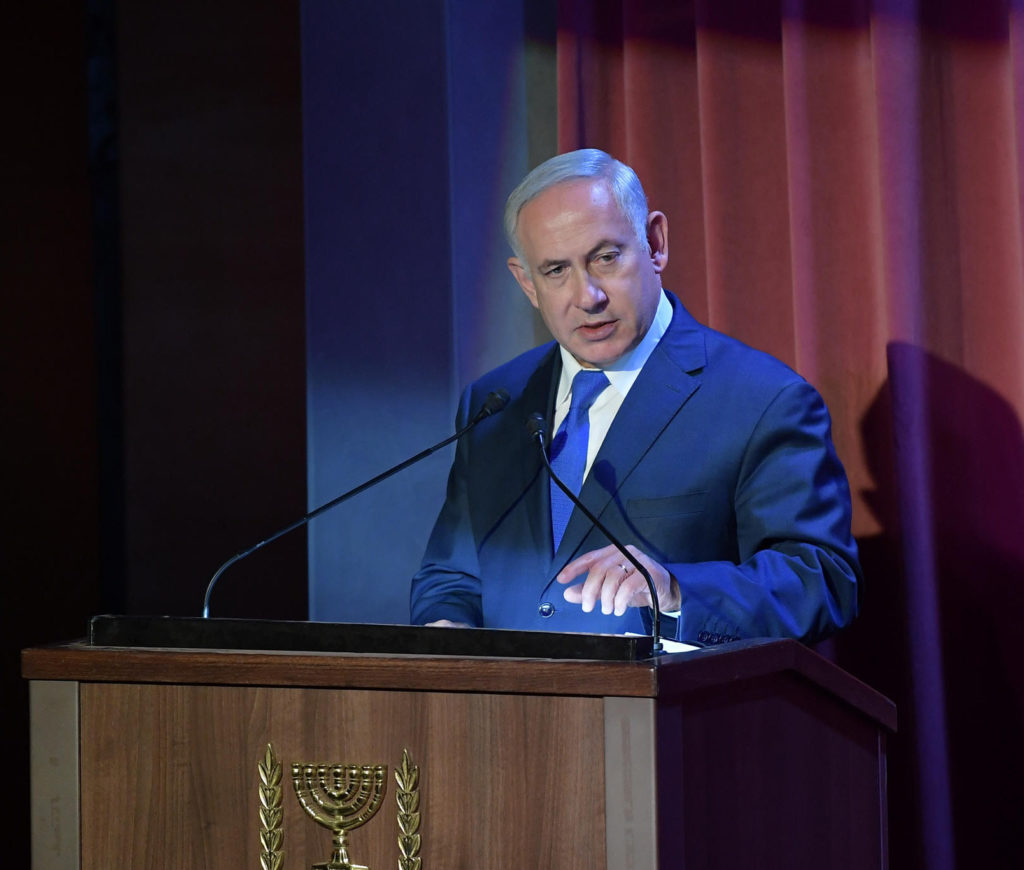
On Sunday, Israeli Prime Minister Benjamin Netanyahu on Sunday managed to rebuke the head of the United Nations nuclear watchdog and threaten Iran militarily—all in one comment. International Atomic Energy Agency (IAEA) Director General Rafael Grossi on Saturday, while visiting Iran, called attacks on nuclear facilities illegal, according to a report from Iran’s PressTV.
In response Netanyahu said Grossi is “a worthy gentleman who said something unworthy,” asking “against which law?” an Israeli attack on Iran’s nuclear program would be.
“Is Iran, which openly calls for our destruction, permitted to defend the destructive weapons that would slaughter us? Are we permitted to defend ourselves? It is clear that we are and it is clear that we will do so. And we will do so in discussions or actions around the clock, which I will not detail here, of course,” said Netanyahu, whose comments were published by Israel.
Israel has long warned they will not permit Iran to obtain nuclear weapons and has reportedly been involved in espionage, assassinations, and sabotage to hinder Iran’s pursuit of the bomb. Recent military exercises with the United States have implied that Israel is preparing to go as far as attack Iran directly if needed to prevent the Islamic Republic from breaching the nuclear weapon threshold. And Iran is dangerously close to doing so.
The IAEA reportedly has found particles of uranium enriched to 83.7% purity in Iran. Weapons-grade nuclear fuel is considered 90% enrichment—although nuclear weapons would require a sufficient quantity of 90% uranium and bomb technology capable setting off a nuclear blast. Iran is not thought to achieved either, yet.
Last week, United States spokesperson Ned Price told reporters the US is aware of the reports of the 83.7% uranium. He reiterated that diplomacy is the preferred solution to the Iran nuclear crisis but they “haven’t taken any tools off the table.”
Price, whose comments were published by the State Department, said on March 1, “We continue to believe that diplomacy is the most effective way to achieve [a resolution to the Iran nuclear crisis], but every time we’ve been asked, we have been very clear that we will, through all means necessary, ensure that Iran never acquires a nuclear weapon.”
In a recent commentary published by The Atlantic, former Obama Administration official Dennis Ross called for the US to make Iran believe a military threat from Israel—and backed as needed by the US—is real. He suggested the US offer specific weapons to Israel to make such an attack more feasible, among other steps, which he believed could drive Iran to pull back and give diplomacy a chance. Ross warned that failure to convince Iran would instead result in Iran pushing ahead towards nuclear weapons and lead to a regional war.
While Price was vague on the US threat against Iran’s nuclear program, he also pointed towards regional cooperation countering Iran. Said Price, “We are supremely confident in the commitment that we have made that Iran will not obtain a nuclear weapon. That is a goal we share with countries around the world in Europe, in the Middle East, and well beyond.”
Netanyahu was much more clear on Sunday in his counterargument against Grossi’s opposition to attacks on nuclear facilities. “I say this because nothing will deter us from defending our country and preventing our enemies from eliminating the state of the Jews,” said Netanyahu.
The timing of the threat from Iran is especially poignant for the Jewish people at this time of year. Monday at sundown begins the holiday of Purim—which marks the Biblical victory of Queen Esther over the villain Haman, who plotted to commit genocide against the Jewish people in the Kingdom of Persia—the ancestor to modern-day Iran. Netanyahu believes that there is a lesson there for today.
Said Netanyahu, “We are on the eve of Purim: 2,500 years ago an enemy arose in Persia who sought to destroy the Jews. They did not succeed then, neither will they succeed today.”
(By Joshua Spurlock, www.themidesatupdate.com, March 5, 2023)
